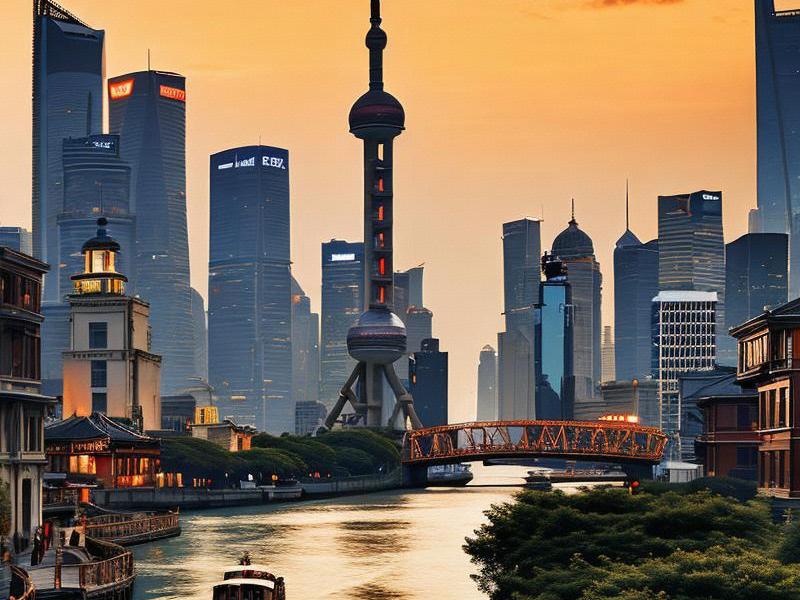This article delves into the fascinating aspects of Shanghai, from its historical significance to its modern-day achievements, highlighting why it continues to captivate the world's attention.

Shanghai, known as "The Paris of the East," is a city that seamlessly blends the old with the new. Nestled at the mouth of the Yangtze River, it is not only China's largest city but also one of the most cosmopolitan cities in the world. With a population exceeding 24 million, Shanghai is a melting pot of cultures, languages, and traditions.
Historically, Shanghai was a small fishing village until it became a treaty port in the mid-19th century after the First Opium War. This marked the beginning of its transformation into a major international trading center. The Bund, a waterfront area in the heart of the city, is a testament to this history, lined with colonial-era buildings that now house luxury hotels, restaurants, and offices.
One of the most iconic landmarks in Shanghai is the Oriental Pearl Tower, a telecommunications and observation tower that stands at 468 meters (1,535 feet) tall. Completed in 1994, it was the tallest building in Asia at the time and remains a symbol of Shanghai's rapid development. Visitors can ascend to the observation decks for breathtaking views of the city skyline, especially stunning at night when the city lights up like a sea of stars.
Shanghai's economic prowess is another aspect that sets it apart. As one of the four direct-controlled municipalities of China, it has the highest GDP among all Chinese cities. The city is home to the Shanghai Stock Exchange, one of the largest stock exchanges in the world, and is a major hub for finance, trade, and commerce. The Pudong district, located on the east side of the Huangpu River, is a symbol of Shanghai's economic success, featuring the iconic Lujiazui Financial District, where skyscrapers like the Shanghai Tower, the Jin Mao Tower, and the World Financial Center dominate the skyline.
上海龙凤419自荐
Culturally, Shanghai is a vibrant city that celebrates its heritage while embracing modernity. The city is famous for its art scene, particularly in areas like the M50 Creative Park and the West Bund Art & Design. These areas are home to numerous galleries and studios showcasing contemporary Chinese art. The Shanghai Museum, located in People's Square, is another cultural gem, housing an impressive collection of ancient Chinese art, including ceramics, bronzes, and calligraphy.
Food lovers will find Shanghai a paradise, with its distinctive cuisine known as "Shanghainese" or "Hu cai." Dishes like xiaolongbao (soup dumplings), shengjianbao (pan-fried dumplings), and baozi (steamed buns) are must-tries. The city's night markets, such as the Nanxiang Steamed Bun Restaurant and the Yuyuan Garden Night Market, offer a taste of authentic Shanghainese flavors.
Shanghai is also a city of gardens and classical architecture. The Yu Garden, a classical Chinese garden built in the Ming Dynasty, is a serene escape from the bustling city life. It features beautiful pavilions, rockeries, and ponds, reflecting the harmony of nature and human craftsmanship. Another notable site is the former French Concession, an area filled with charming cobblestone streets, cafes, and boutiques, offering a glimpse into the city's colonial past.
上海龙凤419手机
In recent years, Shanghai has been at the forefront of China's technological advancements. The city is a leader in smart city initiatives, with innovations in transportation, energy, and urban management. The Maglev train, which connects the city center to Pudong International Airport, is a marvel of modern engineering, reaching speeds of up to 430 kilometers per hour (267 miles per hour).
Shanghai's commitment to sustainability is also noteworthy. The city has set ambitious goals to become carbon-neutral by 2050, with initiatives like the construction of green buildings, the promotion of electric vehicles, and the development of renewable energy sources. The Xujiahui Park Solar Power Plant, one of the largest solar power plants in the city, demonstrates Shanghai's dedication to clean energy.
Education is another area where Shanghai excels. The city is home to some of the best universities in China, including Fudan University and Tongji University, attracting students and researchers from around the world. Shanghai's education system is known for its rigorous standards and innovative approaches, contributing to the city's reputation as a global knowledge hub.
爱上海同城对对碰交友论坛
Tourism is a significant part of Shanghai's economy, with millions of visitors flocking to the city each year. Attractions like the Shanghai Tower, the Jin Mao Tower, and the Shanghai World Financial Center offer thrilling experiences, while cultural sites like the Shanghai Museum and the Yu Garden provide a deeper understanding of the city's rich history and culture.
Shanghai's transportation network is one of the most efficient in the world, making it easy to explore the city and beyond. The Shanghai Metro, one of the busiest metro systems globally, covers extensive areas of the city, providing quick and convenient travel options. The city is also well-connected by air, rail, and water, with Hongqiao International Airport and Pudong International Airport serving as major gateways to China and the world.
In conclusion, Shanghai is a city that truly embodies the spirit of China's rapid modernization while preserving its rich cultural heritage. From its stunning skyline and historical landmarks to its vibrant arts scene and delicious cuisine, Shanghai offers a unique and unforgettable experience for visitors. Whether you're interested in history, culture, technology, or simply want to explore a dynamic and cosmopolitan city, Shanghai is a destination that will leave you in awe.